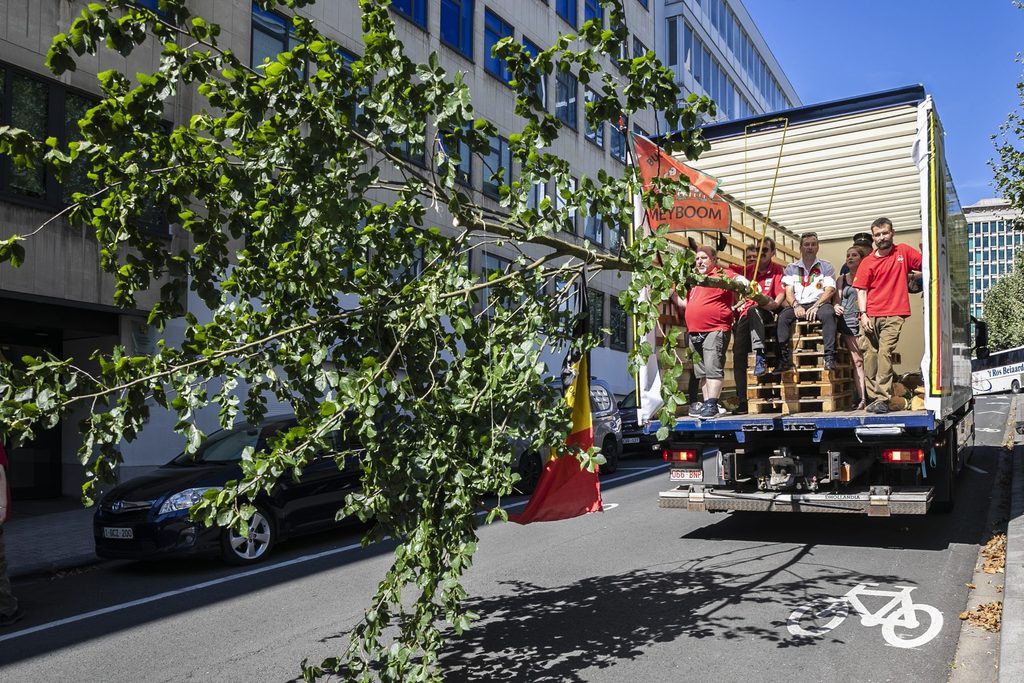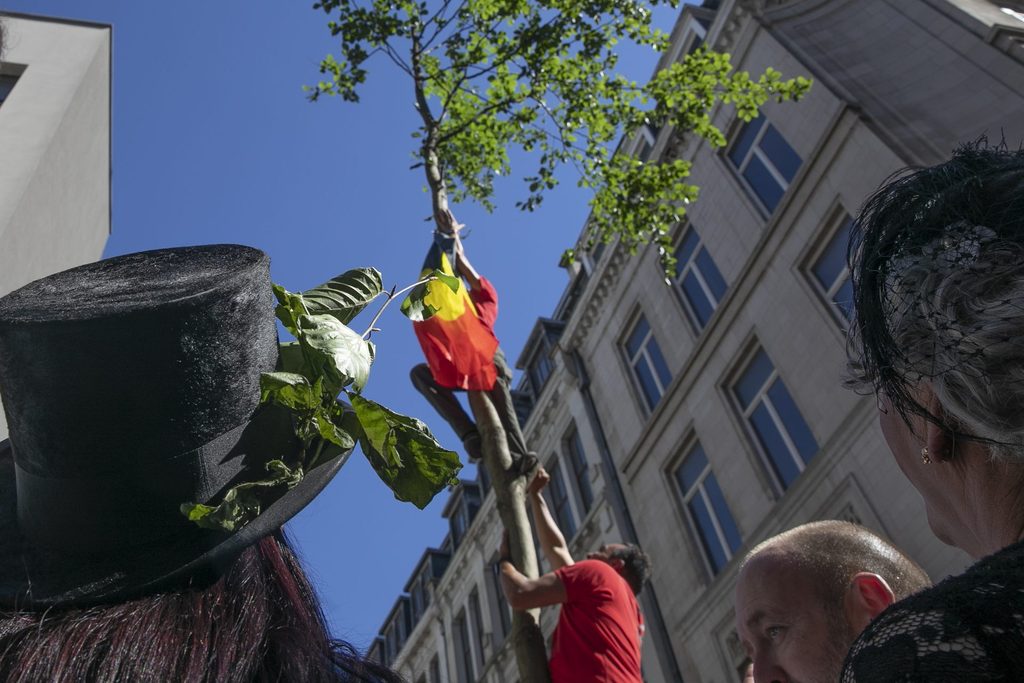Those wandering through Brussels on Wednesday may have been surprised to see a colourful parade, giant puppets and the planting of a tall tree – a local tradition which dates back to 1213.
Every 9 August, the people of Brussels take part in the Meyboom parade, an annual custom where people take to the streets accompanied by a brass band, giant puppets and all sorts of folklore groups. At the end of the parade, a "tree of joy" referred to as the Meyboom is planted.
The planting of this tree is one of the lasting symbols of Brussels folklore and has been recognised as an intangible heritage by Unesco. This year marks the 715th edition of the folkloric tree planting parade.
The Meyboom was first planted in 1213, when Brussels won an important victory over Leuven – although history is unclear about what the dispute was about exactly, with legends ranging from a disrupted wedding party to a beer tax.
To mark Brussels' victory, the Duke of Brabant gave the Companions of St Laurentius the privilege of planting a Meyboom every year on 9 August.
Afternoon deadline
The occasion is still commemorated every year on this date. In the morning, participants pick up the chosen tree in the Bois de la Cambre in Brussels.
From there, the Buumdroegers (old Flemish dialect for tree bearers) carry it through several Brussels communes under the protection of the so-called Gardevils.
The tree passes through Grand Place where it is presented to the public and the city's dignitaries before the parade finishes at Rue des Sables in the city centre (near the Belgian Comic Strip Centre).

2022 edition of the Meyboom festivities. Credit: Belga / Hatim Kaghat
The Gardevils and the Buumdroegers go out of their way to move quickly and protect the tree from the lurking Leuvener, as the tree must be planted at the intersection of Rue du Marais and Rue des Sables by 17:00 in the afternoon.
The deadline is a consequence of the "opening hours" of the Brussels city walls in the Middle Ages. as they closed after this hour, meaning the tree could no longer be planted.
If this does not happen in time, the victory goes to the people of Leuven. In 1939, the people of Leuven effectively took the Meyboom, however, the people of Brussels found a new Meyboom in time to save their honour.
If the people of Brussels succeed, celebrations are kicked off until the early hours of the following morning.

